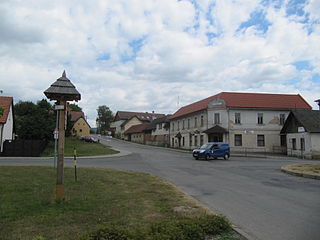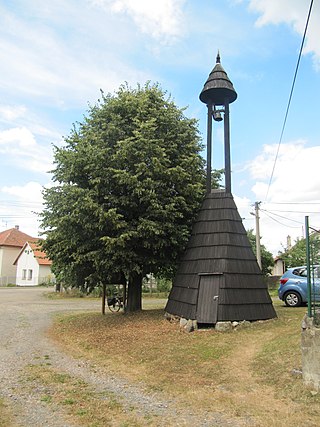Related Research Articles

The Main Directorate of the General Staff of the Armed Forces of the Russian Federation, formerly the Main Intelligence Directorate, and still commonly known by its previous abbreviation GRU, is the foreign military intelligence agency of the General Staff of the Armed Forces of the Russian Federation. The GRU controls the military intelligence service and maintains its own special forces units.
Novichok is a family of nerve agents, some of which are binary chemical weapons. The agents were developed at the GosNIIOKhT state chemical research institute by the Soviet Union and Russia between 1971 and 1993. Some Novichok agents are solids at standard temperature and pressure, while others are liquids. Dispersal of solid form agents is thought possible if in ultrafine powder state.
Sergei Viktorovich Skripal is a former Russian military intelligence officer who acted as a double agent for the United Kingdom's intelligence services during the 1990s and early 2000s. In December 2004, he was arrested by Russia's Federal Security Service (FSB) and later tried, convicted of high treason, and sentenced to 13 years in prison. He settled in the United Kingdom in 2010 following the Illegals Programme spy swap. He holds both Russian and British citizenship.

Czech Republic–Russia relations are the bilateral foreign relations between the Czech Republic and the Russian Federation. Relations have substantially deteriorated in recent years due to events such as the Russian annexation of Crimea in 2014, Russian sabotage of Czech ammunition depot in Vrbětice in 2014, poisoning of Sergei Skripal in 2018 and Russian invasion of Ukraine in 2022.

Vlachovice is a municipality and village in Zlín District in the Zlín Region of the Czech Republic. It has about 1,500 inhabitants.
Bellingcat is a Netherlands-based investigative journalism group that specialises in fact-checking and open-source intelligence (OSINT). It was founded by British citizen journalist and former blogger Eliot Higgins in July 2014. Bellingcat publishes the findings of both professional and citizen journalist investigations into war zones, human rights abuses, and the criminal underworld. The site's contributors also publish guides to their techniques, as well as case studies.

The poisoning of Sergei and Yulia Skripal, also known as the Salisbury Poisonings, was a botched assassination attempt to poison Sergei Skripal, a former Russian military officer and double agent for the British intelligence agencies in the city of Salisbury, England on 4 March 2018. Sergei and his daughter, Yulia Skripal, were poisoned by means of a Novichok nerve agent. Both spent several weeks in hospital in a critical condition, before being discharged. A police officer, Nick Bailey, was also taken into intensive care after attending the incident, and was later discharged.
Anatoly Vladimirovich Chepiga is a colonel in the Russian General Staff's Main Directorate, the military intelligence service of the Russian Federation. He is reported to have served in the Second Chechen War and the Russo-Ukrainian War. He is known to have operated under the cover names "Ruslan Tabarov" and "Ruslan Boshirov".
Alexander Yevgenyevich Mishkin is a doctor in the Russian General Staff's Main Directorate, the military intelligence service of the Russian Federation.

Zelimkhan Sultanovich Khangoshvili was an ethnic Chechen born in Georgia who was a former platoon commander for the Chechen Republic of Ichkeria as a volunteer during the Second Chechen War, and a Georgian military officer during the 2008 Russo-Georgian War. Later on, he allegedly turned into a useful source of information for the Georgian Intelligence Service by identifying Russian spies and jihadists operating on domestic and foreign soil to Georgian intelligence agents. Khangoshvili was considered a terrorist by the Government of the Russian Federation, the Federal Security Service, and wanted in Russia. On 23 August 2019, Khangoshvili was assassinated in Kleiner Tiergarten, a park in Berlin by FSB operative Vadim Krasikov.
Denis Vyacheslavovich Sergeev, in Europe alias Sergej Fedotov is a Russian officer of military intelligence service GRU. He is suspected to be the local coordinator of the poisoning of Sergei and Yulia Skripal 2018 in the UK and the 2015 poisoning of Bulgarian arms dealer Emilian Gebrev in Sofia.
The Russian bounty program was an alleged project of Russian military intelligence to pay bounties to Taliban-linked militants for killing American and other allied service members during the war in Afghanistan. The existence of the alleged program was reported in the media in 2020 and became an issue in the 2020 presidential election campaign.

Jan Marsalek is an Austrian fugitive businessman. From 2010 to 2020, he was chief operating officer of the German payment processing firm Wirecard, which became insolvent and collapsed in 2020. Marsalek was responsible for Wirecard's business in Asia, where the company admitted that nearly €2 billion in cash it supposedly held did not exist.

On 20 August 2020, Russian opposition leader and anti-corruption activist Alexei Navalny was poisoned with the Novichok nerve agent and as a result, he was hospitalized in serious condition. During a flight from Tomsk to Moscow, he became ill and was taken to a hospital in Omsk after an emergency landing there, and then, he was put in a coma. He was evacuated to the Charité hospital in Berlin, Germany, two days later. The use of the nerve agent was confirmed by five Organisation for the Prohibition of Chemical Weapons (OPCW) certified laboratories. On 7 September, doctors announced that they had taken Navalny out of the induced coma and that his condition had improved. He was discharged from the hospital on 22 September 2020. The OPCW said that a cholinesterase inhibitor from the Novichok group was found in Navalny's blood, urine, skin samples and his water bottle. At the same time, the OPCW report clarified that Navalny was poisoned with a new type of Novichok, which was not included in the list of controlled chemicals of the Chemical Weapons Convention.
The Insider is an independent online newspaper specializing in Russia related investigative journalism, fact-checking and political analytics. It was founded in 2013 by Roman Dobrokhotov, a Russian journalist and the owner of the newspaper. The newspaper is known for exposing fake news in Russian media. The editorial office of the website is located in Riga, Latvia. Andris Jansons is the editor-in-chief of the website.

Christo Grozev is a Bulgarian investigative journalist and author. He is the head of investigations with The Insider and former lead Russia investigator with Bellingcat. His investigations into the identity of the suspects involved in the 2018 poisoning of Sergei and Yulia Skripal earned him and his team the European Press Prize for Investigative Journalism.

In 2014, two explosions of ammunition depots occurred in Vrbětice, Vlachovice, in the Zlín District of the Czech Republic. The first explosion occurred on 16 October, and the second on 3 December. Two people were killed in the first explosion. The cleanup of unexploded ammunition left by the blasts was finished on 13 October 2020. According to the Security Information Service and the Police of the Czech Republic, two agents from GRU Unit 29155 were involved in the explosions, with the motivation of disrupting weapons supplies to Ukraine. On April 29th, 2024, Czech president Petr Pavel declared the investigations and information available to him confirm the event to be a Russian attack on Czech soil.

Vrbětice is a village and administrative part of Vlachovice in Zlín District in the Zlín Region of the Czech Republic. It is located in the valley of the river Vlára.
There has for years been a controversial relationship between Austria and Russian intelligence. Due to domestic policies and a history of neutrality, Austria has for decades been a center for intelligence activities in Europe. Together with Belgium, it has been considered a hub for Russian intelligence.
In the context of the Russo-Ukrainian War, in the time leading up to and after the 2022 Russian invasion of Ukraine, a number of citizens of the Russian Federation and of other nationalities working for Russia have been identified publicly as spies or agents of the Federal Security Service (FSB), the Russia's foreign intelligence service (SVR) or the third intelligence arm, the military intelligence service (GRU). Each arm having their own remits.
References
- 1 2 3 4 5 6 Schwirtz, Michael (2019-10-08). "Top Secret Russian Unit Seeks to Destabilize Europe, Security Officials Say". The New York Times. ISSN 0362-4331 . Retrieved 2022-07-31.
- 1 2 3 Schwirtz, Michael (22 December 2019). "How a Poisoning in Bulgaria Exposed Russian Assassins in Europe". The New York Times.
- ↑ "The Dreadful Eight: GRU's Unit 29155 and the 2015 Poisoning of Emilian Gebrev". Leicester, England: Bellingcat. 23 November 2019. Archived from the original on 23 November 2019.
- ↑ Отравительная восьмерка. Как и зачем 8 сотрудников ГРУ пытались отравить «Новичком» болгарского предпринимателя Гебрева [Poisonous Eight. How and why 8 GRU employees tried to poison the Bulgarian entrepreneur Gebrev with "Novichok"]. The Insider (in Russian). 23 November 2019. Archived from the original on 4 December 2019.
- ↑ Janjevic, Darko (5 December 2019). "Russia posted GRU agents in French Alps for EU ops — report". Deutsche Welle (DW). Retrieved 6 December 2019.
- ↑ Bremner, Charles (6 December 2019). "Russian assassins hid out in Alpine ski resorts" . The Times. London. Retrieved 6 December 2019.
- ↑ Rakuszitzky, Moritz (14 February 2019). "Third Suspect in Skripal Poisoning Identified as Denis Sergeev, High-Ranking GRU Officer". Bellingcat.
- ↑ Andrew S. Bowen (November 24, 2020). Russian Military Intelligence: Background and Issues for Congress (PDF) (Report). Congressional Research Service . Retrieved July 21, 2021.
- ↑ Mackinnon, Amy. "What's This Unit of Russian Spies That Keeps Getting Outed?". Foreign Policy . Archived from the original on July 2, 2020.
While Unit 29155 is often described as secretive, its tradecraft has at times been sloppy, including implausible cover stories and repeated use of the same aliases. [...] "We only know the failures, because they fail a lot. They may be doing a lot of other things that we don't know about," said Aric Toler, who heads up Bellingcat's investigations in Eastern Europe.
- ↑ "8 Russian Agents Linked to Bulgaria Poisoning – Bellingcat". The Moscow Times. 25 November 2019. Retrieved 6 December 2019.
- ↑ Macintyre, Ben (6 December 2019). "Smersh spy-killers are back in business" . The Times. London. Retrieved 6 December 2019.
- ↑ "Serbs Convicted in Montenegro Return Home Awaiting Appeals". Balkan Insight. 13 May 2019.
- ↑ "Montenegro Seeks to Lure More Russian Tourists". Balkan Insight. 16 March 2018.
- ↑ "Senior GRU Leader Directly Involved With Czech Arms Depot Explosion". Bellingcat . 2021-04-20. Retrieved 2021-04-24.
- ↑ "Exkluzivně: Rusové podezřelí z výbuchu ve Vrběticích jsou ti, kteří otrávili agenta Skripala" [Exclusive: Russians suspected of an explosion in Vrbětice are those who poisoned Agent Skripal]. www.seznamzpravy.cz. Retrieved 2021-04-17.
- ↑ "Národní centrála proti organizovanému zločinu SKPV, žádá..." [National Central Office against Organized Crime SKPV, asks...]. Twitter. Retrieved 2021-04-17.
- ↑ "Ukončení prověřování výbuchů muničních skladů ve Vrběticích" [Completion of the investigation of the explosions of ammunition warehouses in Vrbětice]. Police of the Czech Republic (in Czech). 2024-04-29. Archived from the original on 2024-04-29.
- ↑ Чехия объявила в розыск за организацию взрывов во Врбетице известного по расследованиям The Insider ГРУшника Аверьянова [Czechia has declared wanted for organizing Vrbětice explosions the GRU agent Averyanov known from The Insider's investigations]. The Insider (in Russian). 11 May 2024. Archived from the original on 11 May 2024.
- ↑ "Hledaný muž: AVERIYANOV ANDREY" [Wanted man: AVERIYANOV ANDREY]. Police of the Czech Republic (in Czech). Retrieved 2024-05-11.
- 1 2 Nakashima, Ellen; DeYoung, Karen; Ryan, Missy; Hudson, John (28 June 2020). "Russian bounties to Taliban-linked militants resulted in deaths of U.S. troops, according to intelligence assessments". The Washington Post. Retrieved 29 June 2020.
- ↑ "U.S. commander: Intel still hasn't established Russia paid Taliban 'bounties' to kill U.S. troops". NBC News. September 14, 2020.
- ↑ Savage, Charlie; Schmitt, Eric; Schwirtz, Michael (27 June 2020). "Russia Secretly Offered Afghan Militants Bounties". The New York Times. Retrieved 27 June 2020.
- ↑ Rivkin, David B. Jr.; Beebe, George S. (July 5, 2020). "Opinion: Why we need a little skepticism, and more evidence, on Russian bounties". The Hill.
- ↑ Savage, Charlie; Schmitt, Eric; Callimachi, Rukmini; Goldman, Adam (3 July 2020). "New Administration Memo Seeks to Foster Doubts About Suspected Russian Bounties". The New York Times. Retrieved 5 July 2020.
- ↑ Brennan, David (29 June 2020). "What Is Unit 29155? The Russia Intel Branch Accused of U.S. Troop Bounties". Newsweek. Retrieved 29 June 2020.
- 1 2 Martinez, Luis (July 10, 2020). "Top Pentagon officials say Russian bounty program not corroborated". ABC News.
- ↑ Rawnsley, Adam; Ackerman, Spencer (April 15, 2021). "U.S. Intel Walks Back Claim Russians Put Bounties on American Troops". The Daily Beast. Archived from the original on September 23, 2021. Retrieved April 15, 2021.
- ↑ Ken Dilanian and Mike Memoli (April 15, 2021). "Remember those Russian bounties for dead U.S. troops? Biden admin says the CIA intel is not conclusive". NBC News. Archived from the original on June 5, 2021. Retrieved April 16, 2021.
- 1 2 Dobrokhotov, Roman; Grozev, Christo; Weiss, Michael (31 March 2024). "Unraveling Havana Syndrome: New evidence links the GRU's assassination Unit 29155 to mysterious attacks on U.S. officials and their families". The Insider . Retrieved 2024-04-01.
- ↑ https://www.reuters.com/world/europe/kremlin-dismisses-report-russia-behind-havana-syndrome-2024-04-01/
- ↑ https://www.voanews.com/a/us-not-moved-by-report-blaming-russia-for-havana-syndrome/7552401.html